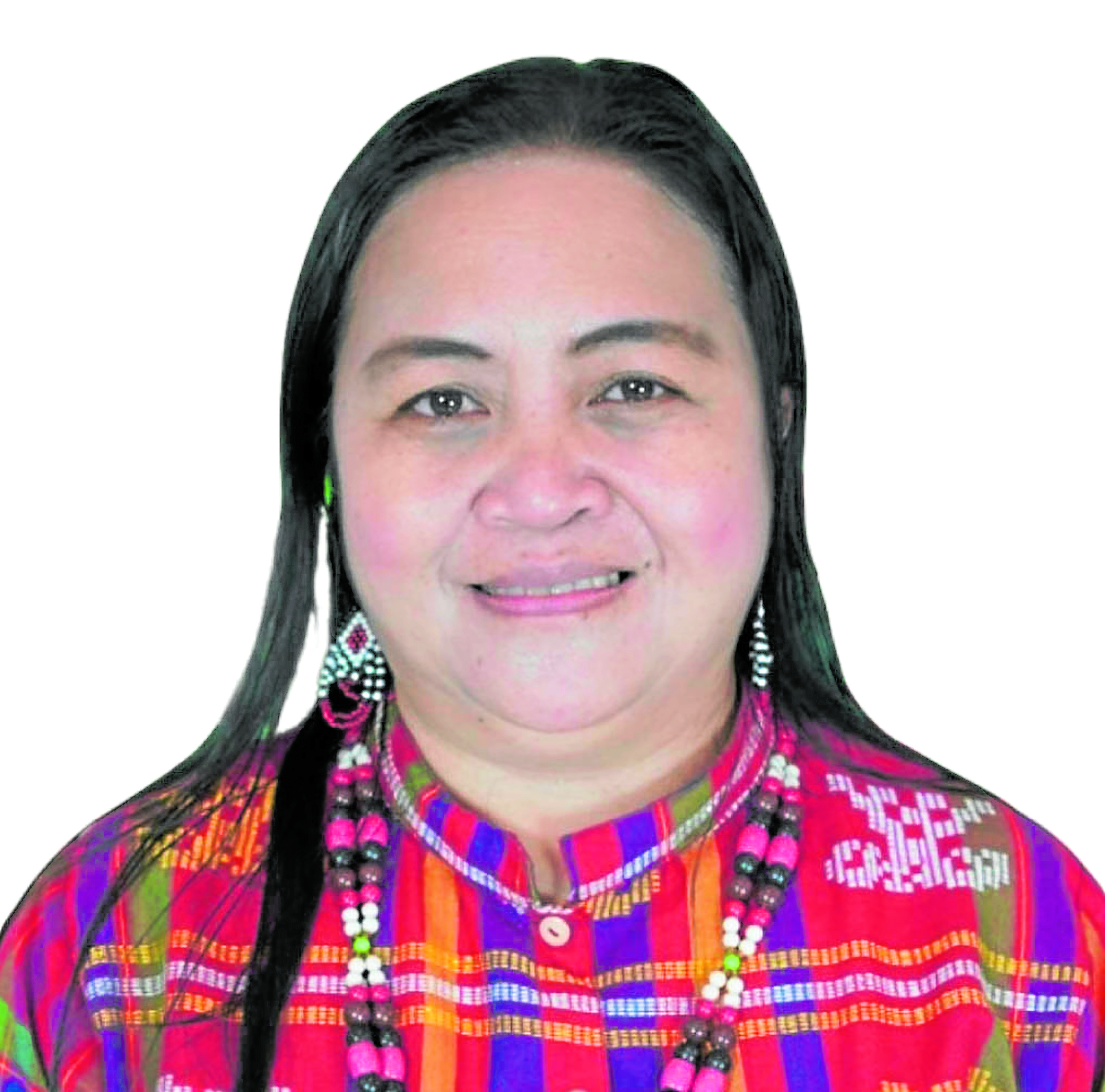Teduray woman bears torch of non-Moro tribes in Bangsamoro parliament

Froilyn Mendoza —CONTRIBUTED PHOTO
A Teduray woman is the lone voice of non-Moro indigenous peoples (IPs) in the parliament of the Bangsamoro Autonomous Region in Muslim Mindanao (BARMM).
Of the regional legislature’s 80 members, only 16 are women, and Froilyn Tenorio Mendoza is the lone member who comes from the ranks of non-Moro indigenous peoples.
READ: Teduray blames NCIP’s inaction on tribe’s ‘forced relocation’ in landslide-hit site
Although many members also identify with the IP struggle, their marginal numbers pose an ever-present challenge, especially in a body dominated by men who are transitioning from being revolutionaries to government functionaries. Add to this, Mendoza carries the weight of expectations of the IP communities, whose collective longing for recognition of and respect for their rights has yet to be addressed with a cogent policy by the regional leadership.
Mendoza is among 39 government-nominated members of the Bangsamoro Transition Authority (BTA), the interim BARMM government, whose institutional life was supposed to expire in June 2022 but was extended by another three years. The other 41 are nominees of the Moro Islamic Liberation Front (MILF).
Article continues after this advertisementPrior to this, Mendoza was the major bearer of the IP agenda before the 15-member Bangsamoro Transition Commission (BTC), from 2013 to 2014, that was then drafting a proposed charter for the Bangsamoro autonomous region, in keeping with the peace deal between the government and the MILF. In several instances, Mendoza crossed paths with former Moro revolutionaries.
Article continues after this advertisementLone, thin voice
“Amid our troubled conditions as [non-Moro] IPs in the BARMM, [Mendoza] helped a lot in pushing for legislation to protect IP rights,” says Timuay Alim Bandara, a member of the Minted sa Inged (Supreme Council) of the Timuay Justice and Governance.
Mendoza “is the only ally of the Teduray and Lambangian in the BTA Parliament,” adds Timuay Santos Unsad, another leader of the Teduray-Lambangian tribe. “She is bannering our aspirations for full recognition, respect, promotion, protection and preservation of our rights in the BARMM.”
READ: Teduray folk flee fighting in Maguindanao del Sur
Mendoza considers this role a huge challenge since pushing for or sponsoring laws without the necessary numbers for support is not easy. “The voice of the IPs, both in the field and in the legislative platform, is so thin,” she says.
Yet she perseveres. In June last year, she filed BTA Bill No. 166, which particularly focused on the non-Moro IPs, seeking to recognize, respect and defend their indigenous rights, traditions and institutions.
The term “non-Moro IPs” encompasses IP groups that include the Teduray, Lambangian, Dulangan Manobo, Blaan, Higaonon and other indigenous communities living in the Bangsamoro region. The proposed measure seeks to ensure the interests of non-Moro tribes in the mainland as well as in remote island villages of the region. Reaching out
Mendoza, apart from attending deliberations in the parliament, also visits remote communities where ethnic groups live so she can check their situation.
On March 11, Mendoza was unable to personally receive her award in Manila as one of the Inquirer’s Women of Power honorees as she was stuck in a remote village in South Upi, Maguindanao del Sur, where she was attending to families who no longer wanted to return to their old community at Sitio Apas, Barangay Lipongo in Datu Hoffer Ampatuan town because of continuing threats from armed groups.
The families fled their homes and settled with relatives in South Upi in the last three years after at least two of their leaders were killed.
Mendoza notes that more than a thousand non-Moro IPs have been displaced in the Bangsamoro because of land conflicts and skirmishes among armed groups.
Parents’ example
Mendoza’s passion for assisting these communities, no matter the difficulties, can be traced to her growing-up years among the Teduray in South Upi’s remote Timanan village. Her father, Timuay Alfredo Obregon Tenorio, who once served as municipal secretary, had initiated the creation of this town in 1977.
Her mother, Dionisia Laugan-Tenorio, a teacher at Timanan Central Elementary School, spent her weekends organizing IP women to address issues that included health, sanitation and literacy. As an educator, her mother encouraged other IP women to send their children to school.
It was her mother who founded the Teduray-Lambangian Women’s Organization (TLWO), an umbrella group of IP women not only in South Upi but also of the Dulangan Manobo tribe in Ampatuan town of the then undivided Maguindanao province, and the Higaonons in Lanao del Sur.
As soon as she finished a degree in agriculture from the University of Southern Mindanao in Kabacan, Cotabato province, Mendoza worked for the group as a volunteer, going around remote communities to help establish livelihood programs for IP women.
Today, she continues to be active in empowering indigenous women and providing support for victims of gender-based violence.
She was serving as TLWO executive director when, on Dec. 17, 2013, then President Benigno Aquino III appointed her a member of the BTC, which gave her the opportunity to embed the IP agenda in the evolving governance architecture of the future Bangsamoro government.
The IPs intend to keep their agenda alive within the Bangsamoro policy discourse through the newly organized Indigenous Peoples Democratic Party, which is planning to vie for parliament seats in the 2025 elections. Mendoza leads the party.“I need to be strong because the IP people rely on me. But the IP communities are also the source of my strength,” says Mendoza.